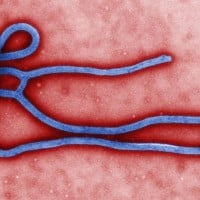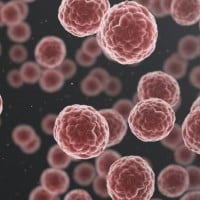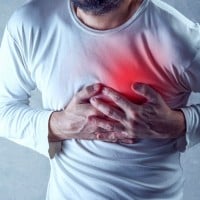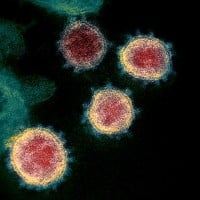Top Ten Most Harmful Diseases

Cancer is a really deadly virus, yes. But cancer comes from one body system. Yes, I know that tumors cause damage to organs. However, at least cancer has treatment and far more supportive care than Ebola!
With this hellspawn, there is no cure, just like cancer. But this... this doesn't have any treatment! Wanna know how you rid of Ebola? Your body has to do it.
Cancer forms tumors that damages organs, but you can rid of those before it damages any! If you get Ebola, your organs are messed! It turns them into a liquid, except for you spleen. It turns you spleen into a rock, pretty much.
The only thing you get from this is supportive care, and you get much more of that if you have cancer.
This deserves to be #1. Cancer comes in as second, but no where close to being as bad as this nightmare.

I have a message that maybe can prevent cancer. Try not to eat food coloring. If you have food coloring like everyday, you MAY get cancer. Cancer can kill tons of people.
Do not use the things which can cause you cancer. But if you do not care yourself by not avoiding smoking then before smoking first think about your family left behind you after your death
Cancer is a fatal non-communicable disease. A million people die due to cancer every year. I can say that cancer is a very dangerous disease.

The bubonic plague also known as the black death killed almost all people in Europe. In the dark ages, a couple thousand years after the Roman Empire fell, a deadly plague that is more deadly then cancer, most people don't even know about this plague so they think cancer is more deadly. The black death is not known how it started. Mostly, people think it was the rats some think it was the bad air, but some think it was God's madness and put down the plague it killed. More then Adolf Hitler in WW2, he killed 6 million the black death killed 25 MILLION! Don't believe me? LOOK IT UP. And it is still killing today. It started with a sudden fever and pain in weird places followed by throwing up blood getting black things all over skin and body parts start to die, turning them black. You would have died in 2-5 days. Only 300 people who got it, 1 survived it. I am European and if my ancestors died, I would not be here. Most ancestors from Europe that had survived this thing is that their DNA that helps them fight off the black death so all people that are European can fight it off but people that have no Europe in them will have no change, but we do have shots, but they don't help a lot so most people that get it and are not European died. People abandoned their family and kids just so they can't get it there.are lots of movies about it, watch them. Sorry, very bad spellcheck. Please vote for this to the ones that died during that time for no reason and had no chances. Thanks.

This should be 2ns. This is less common but way worse than cancer. Ebola is barely curable, and very contagious so it deserves no 1. But this is just as bad. You have sex with the wrong person and boom, no cure. You just have to wait for the aids to kill you. It's really a terrible and sad thing. People who say to their spouse "do you wanna start that family you always wanted?" And instead one of you gets aids. Best case scenario with this, both sex partners get it and they can die together without having to bear the loss of the other. I can't believe people get this when they just want to start a whole new life with their spouse ._.

This should be number one. It isn't because it isn't a know disease and not many people have it. Sorry if this sounds offensive in anyway. But it should definitely be at the top!
This disease is estimated to have killed about half of the people who have ever lived. Hundreds of billions of deaths. No disease can compare, and no disease ever will.
My mom was in Pakistan. She got bitten by a mosquito that carried malaria. She almost died
Chronic obstructive pulmonary disease?
Yes it's true cholera is the very harmful. We should aways take a injection of cholera before going to any piligrimage.
It is too evil! I am Slenderman! Go to sleep...

Heart diseases are bloodblocking. The heart attack can kill you. I don't want you to die, I am worried about death. Don't eat an unhealthy diet. Don't smoke. These two things can cause heart disease.
Having a heart disease can be dangerous so try to keep your heart safe
You know what's overly sickening? The fact that some people have the literal audacity to put things such as hepatitis b above als, which is one of the most devastating diseases in existence. Might as well be a less hyper form of crippling autism.
It is the disease which will remain with you throughout your life


It's both a disease and a disorder. Once you have this, you'll going to have a slow suffering death. It's caused by a mutation and cannot be cured. Fortunately, it's very rare.
 Coronavirus disease 2019 or COVID-19 is a contagious disease caused by a virus, the severe acute respiratory syndrome coronavirus 2 (SARS-CoV-2).
Coronavirus disease 2019 or COVID-19 is a contagious disease caused by a virus, the severe acute respiratory syndrome coronavirus 2 (SARS-CoV-2).